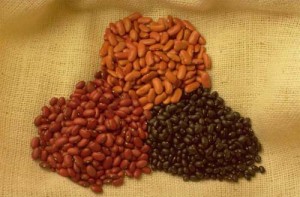What Is Resilience?
The concept of resilience is at the heart of the Transition movement. Resilience refers to the ability to hold together and maintain functioning while experiencing change and shocks from the outside. Resilient systems can roll with external shocks and adapt as needed, so as to retain essentially the same function, structure, and identity while undergoing change.
In the Transition movement we are particularly concerned about the resilience of our towns and communities. We are looking at their ability to provide for us in the future and not to collapse with oil or food shortages.
Resilience and Sustainability
Resilience goes far beyond sustainability. For example, planting trees to create community woodlands may lock up carbon, increase biodiversity, and have other benefits, but it does little to build resilience in the food supply system. In contrast, planting a well-designed food forest does increase resilience.
The Transition movement sees community resilience as a desirable state and the process of rebuilding resilience as very beneficial economically.
How vulnerable are we in Cornwall to the shocks that might result from peak oil, climate change, and global economic instability? By acting now to increase our resilience, Cornwall can continue to thrive in the face of these changes, even though they are beyond our control.
